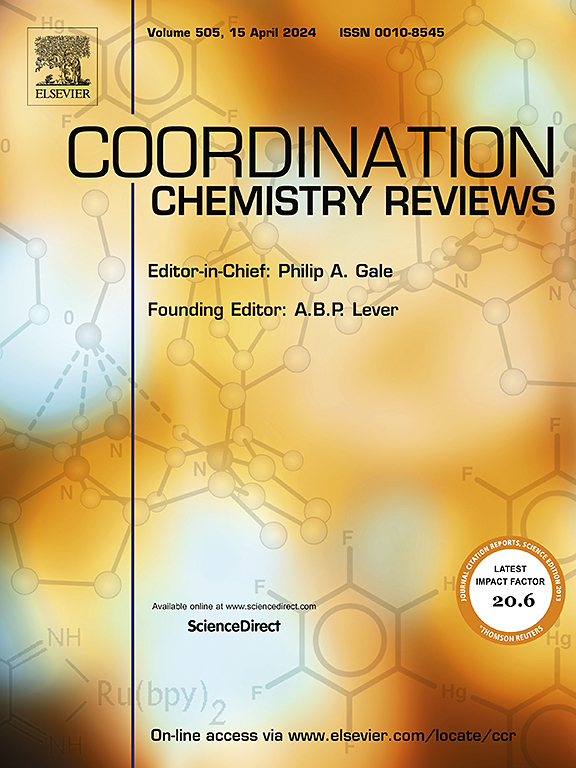Chemically functionalized polymers as corrosion inhibitors: Effect of solubility, adsorption and coordination bonding
IF 20.3
1区 化学
Q1 CHEMISTRY, INORGANIC & NUCLEAR
引用次数: 0
Abstract
This article explores the role of chemically functionalized polymers as effective corrosion inhibitors, emphasizing the need for functionalization to enhance their protective properties. The study investigates the functionalization process that impacts polymer characteristics such as solubility, adsorption behavior, and coordination bonding, directly influencing corrosion protection efficiency. The study reviews covalent and non-covalent functionalized polymers, examining their corrosion inhibition mechanisms through interactions with metal surfaces. The potential of polymer-based composites, including metal/metal-oxide/polymer hybrids, graphene/polymer composites, and cluster-based coordination polymers (CCPs), for corrosion control is explored. The literature survey highlights the significant advancements in these areas, mainly focusing on self-healing capabilities and sustainable materials. Moreover, MXene-polymer composites are proposed as promising candidates for efficient corrosion inhibition. The paper also discusses the challenges associated with using polymer nanocomposites in corrosion inhibition and suggests strategies to overcome these challenges, advancing the development of more effective, environmentally friendly solutions.
化学官能化聚合物作为缓蚀剂:溶解度、吸附和配位键的影响
本文探讨了化学官能化聚合物作为有效缓蚀剂的作用,强调了官能化以提高其防护性能的必要性。该研究考察了功能化过程对聚合物的溶解度、吸附行为和配位键等特性的影响,这些特性直接影响到聚合物的防腐效率。该研究综述了共价和非共价功能化聚合物,通过与金属表面的相互作用研究了它们的缓蚀机制。聚合物基复合材料的潜力,包括金属/金属氧化物/聚合物杂化,石墨烯/聚合物复合材料,以及簇基配位聚合物(ccp),在腐蚀控制方面进行了探索。文献调查强调了这些领域的重大进展,主要集中在自我修复能力和可持续材料上。此外,mxene -聚合物复合材料被认为是有效缓蚀的有希望的候选材料。本文还讨论了在缓蚀中使用聚合物纳米复合材料所面临的挑战,并提出了克服这些挑战的策略,以促进更有效、更环保的解决方案的发展。
本文章由计算机程序翻译,如有差异,请以英文原文为准。
求助全文
约1分钟内获得全文
求助全文
来源期刊

Coordination Chemistry Reviews
化学-无机化学与核化学
CiteScore
34.30
自引率
5.30%
发文量
457
审稿时长
54 days
期刊介绍:
Coordination Chemistry Reviews offers rapid publication of review articles on current and significant topics in coordination chemistry, encompassing organometallic, supramolecular, theoretical, and bioinorganic chemistry. It also covers catalysis, materials chemistry, and metal-organic frameworks from a coordination chemistry perspective. Reviews summarize recent developments or discuss specific techniques, welcoming contributions from both established and emerging researchers.
The journal releases special issues on timely subjects, including those featuring contributions from specific regions or conferences. Occasional full-length book articles are also featured. Additionally, special volumes cover annual reviews of main group chemistry, transition metal group chemistry, and organometallic chemistry. These comprehensive reviews are vital resources for those engaged in coordination chemistry, further establishing Coordination Chemistry Reviews as a hub for insightful surveys in inorganic and physical inorganic chemistry.
 求助内容:
求助内容: 应助结果提醒方式:
应助结果提醒方式:


